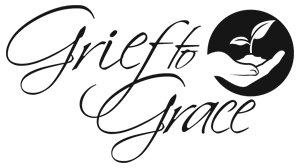Our History
In 1986, Dr. Theresa Karminski Burke founded one of the first organizations for helping women and men recover from the emotional and spiritual aftermath of abortion. In her book Forbidden Grief: The Unspoken Pain of Abortion (co-authored with leading post-abortion researcher David Reardon and published by Acorn Books in 2002), Dr. Burke explains how her work was inspired by leading a support group in graduate school for women with eating disorders. Though many in the group revealed histories of abortion and exhibited symptoms of post- traumatic stress when the subject arose, the clinic supervisor reprimanded her for “prying” into abortion experiences and instructed her to avoid the topic. But, Theresa asked, if people demonstrated the need to talk about their abortion experience, how could a psychiatrist taboo the topic?
Disillusioned by the mental health system, Dr. Burke started free support groups for healing after abortion that first met in the library of a local church. She sought to support women she felt had been ignored or exploited by others—family members, boyfriends, abortion providers, the mental health community—in their times of greatest need.
When Dr. Burke realized that talking about abortion’s deep wounds was not enough, she included scripture stories and exercises to facilitate grieving. In 1994, she published Rachel’s Vineyard: A Psychological and Spiritual Journey for Post Abortion Healing as a 15 week support group model. The program integrated counseling techniques with group therapy discussions and spiritual activities entitled Living Scripture Exercises. The model was designed for counselors to help women grieving the loss of their aborted children.
In 1995, Dr. Burke adapted the curriculum into a format for weekend retreats and soon had people traveling from around the country to attend.
Initially, Rachel’s Vineyard had no budget, advertising, or office. The program faced challenges posed by national politics and criticism from mental health professionals of its spiritual focus. But as participants experienced healing encounters with Christ, awareness of Rachel’s Vineyard spread and a grassroots organization grew up across the country and then the world.
The number of retreats surged from four retreats in in 1995 to 69 in 2000. In 2003, Rachel’s Vineyard became a ministry of Priests for Life, an association of Catholic clergy that emphasizes the Catholic Church’s pro-life teachings and which provided a growing Rachel’s Vineyard—then still operating from Dr. Burke’s home—with needed institutional support.
Rachel’s Vineyard currently offers over 1,000 retreats annually in forty nine states and over 70 countries. Retreats are hosted by church-based ministries, counseling outreach programs, respect life groups, and crisis pregnancy centers. Besides post-abortive women, Rachel’s Vineyard helps couples, fathers, grandparents, siblings of aborted children, as well as nurses and former abortionists, to find peace and healing. Freed from the guilt and shame of abortion, many retreat participants leave eager to share their stories through campaigns like Silent No More, a national organization dedicated to increasing awareness of the devastation abortion brings to women and men. Often, retreat graduates also become program volunteers whom Rachel’s Vineyard trains, equips with treatment manuals, and empowers to go forth and serve around the world.
Developing Grief to Grace
Rachel’s Vineyard retreats consistently included participants who had suffered sexual abuse, suggesting links between the epidemics of sexual assault, domestic violence, child abuse, and subsequent abortion trauma. On retreat, many shared stories of abuse for the first time. Recognizing the critical importance of providing an integrated psychological and spiritual healing program for the aftermath of abuse, Dr. Burke set out to create Grief to Grace. This program focuses specifically on healing the wounds of abuse, and offers new Living Scripture exercises in a retreat format to help survivors unite their suffering with the agony, betrayals, abandonment and suffering of Christ.
After three years of focus group testing, Dr. Burke piloted the first Grief to Grace retreat in 2005 in North Dakota. She formalized the retreat over the next six years to serve a mission of helping abuse survivors feel the presence of God and reclaim their sense of sacred dignity. Since its inception, Grief to Grace has drawn retreat attendees from around the world eager for healing from abusive experiences, including many priests and religious who seek to grieve childhood wounds in our safe, confidential and spiritually nurturing environment that respects their vocations.
Dr. Burke has lectured worldwide on the treatment of trauma through clinical training seminars, both for our program facilitators and for mental health professionals. In recent years, she has expanded her clinical trainings on the trauma of abuse for diocesan professionals and clergy charged with the pastoral care of souls. Fr. Dominic Allain, our International Pastoral Director, has been a crucial partner in these efforts. Grief to Grace is a valuable resource for pastoral leaders to whom abuse survivors come for help. Clergy, especially, are on the front lines of ministering in persona Christi to wounded members of the Body of Christ. Our training equips clergy with information, support, and skills to effectively minister to survivors of trauma.

